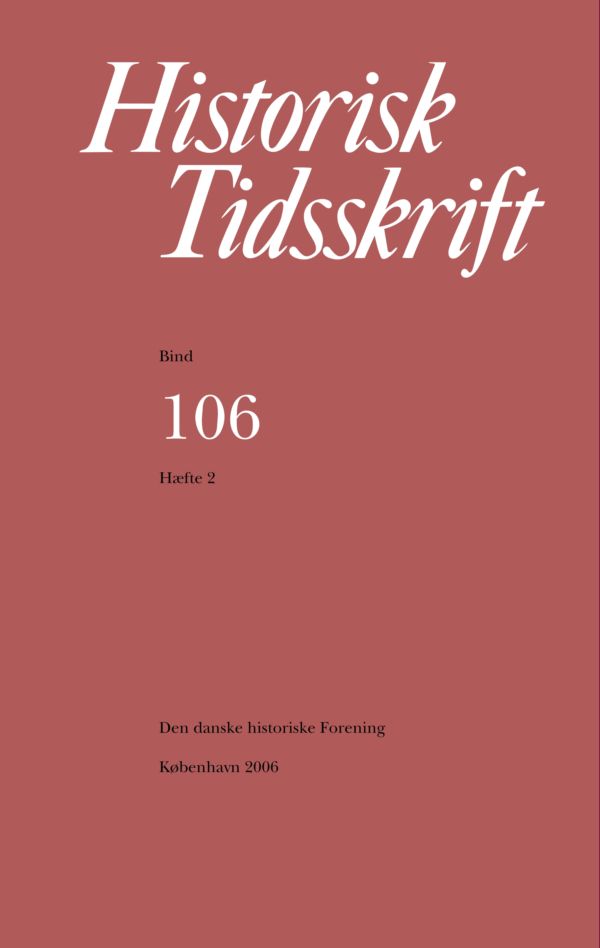Myten om Erik Arup - i anledning af en disputats
Resumé
The Arup Myth – apropos a new biographyErik Arup (1876-1951) was professor of history at the University of Copenhagen 1916-1947, well into the 1920s the only Danish university. Accordingly, Arup and his two colleagues, Aage Friis and Knud Fabricius, were the only history professors in the country and their mutual relations had considerable impact on scholarly life. Arup was a controversial figure and the historical community was rent with bitter strife in the inter-war period. Arup himself saw the conflicts as so many attempts to suppress his supposedly new and path-breaking way of interpreting and writing history, in terms of substance as well as method, especially regarding his History of Denmark I-II (1925 and 1932). His opponents gave more personal reasons for the controversies. Thyge Svenstrup’s new biography of Arup (2006) is based on Arup’s voluminous archive and presents a thorough analysis of the many conflicts, convincingly laying the blame on Arup’s complicated psychology. The present article draws on these insights into Arup’s psychological profile to reinterpret some of the more controversial points of Arup’s scholarship, such as: Was there a special Arup methodology? Why and when did Arup’s famous History of Denmark achieve its controversial form? The article also points to the role of Arup’s successor, Aksel E. Christensen, in perpetuating the Arup myth.Downloads
Publiceret
Citation/Eksport
Nummer
Sektion
Licens
Ophavsret til bidrag i Historisk Tidsskrift tilhører forfatterne og Den danske historiske Forening som udgiver af Historisk Tidsskrift. For illustrationer gælder den ophavsret, som står anført i billedteksten. Ophavsretslovens almindelige bestemmelser gælder, hvilket vil sige, at ophavsretten gælder i 70 år efter forfatterens død. Bidrag i Historisk Tidsskrift må derfor, med forbehold for en ”moving wall” på tre år, frit downloades, læses, gemmes, anvendes og citeres (med kildeangivelse) i privat og videnskabelig sammenhæng, men de må ikke helt eller delvis genudgives af tredjepart, heller ikke i redigeret form, uden tilladelse fra forfatterne og Den danske historiske Forening. Henvendelse skal i så fald rettes til Historisk Tidsskrifts redaktion på histtid@hum.ku.dk.





